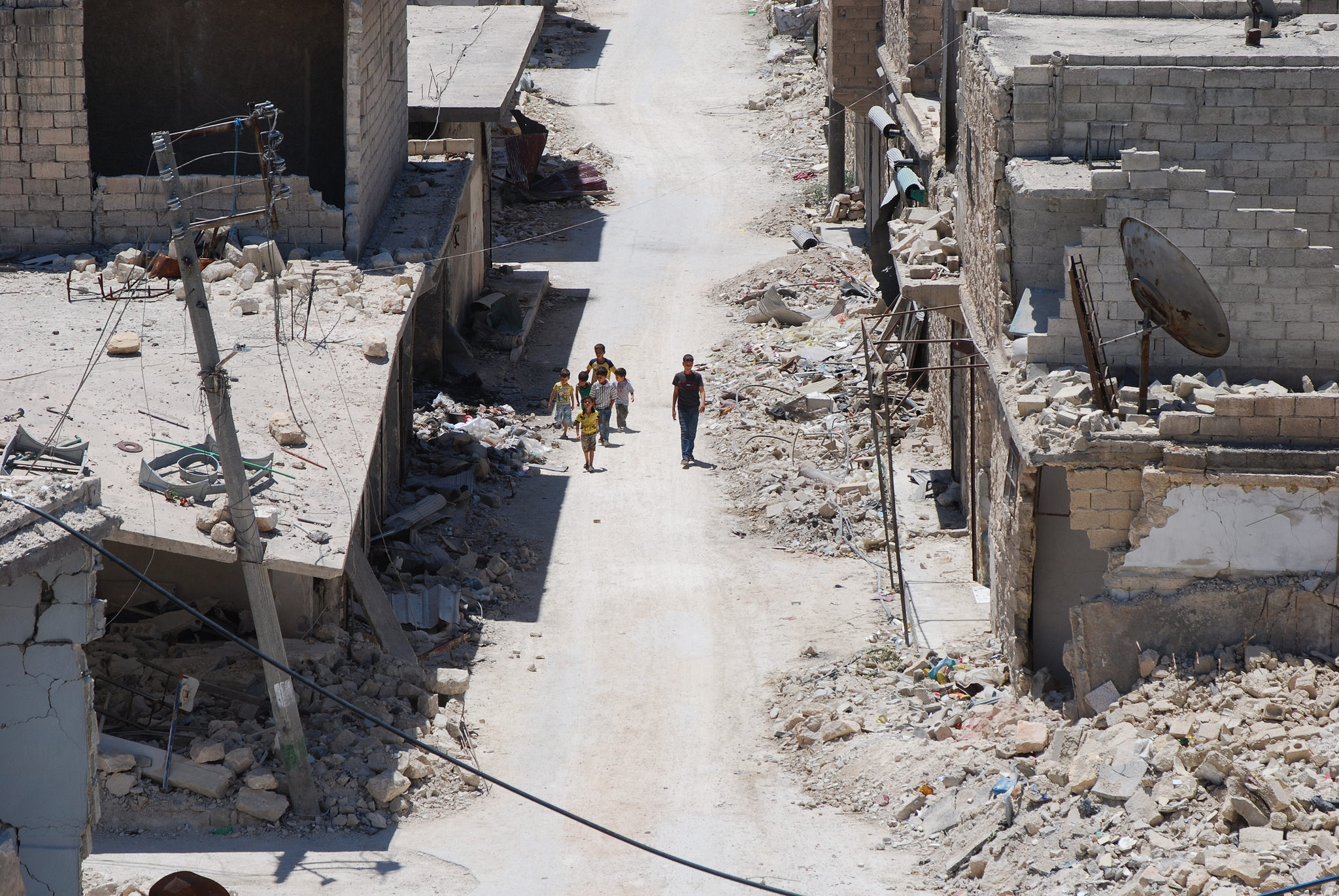
More than 600 people have been killed in eastern Ghouta, a suburb of Damascus, since pro-government forces and its allies intensified their bombardment on 18 February, according to the Syrian Observatory for Human Rights, a UK-based monitoring group.
The Syrian regime of president Bashar al-Assad and Russia, the main ally of Mr Assad, have said the offensive on eastern Ghouta has targeted terrorists, who are attacking Damascus.
The UN estimates that nearly 400,000 people, mostly civilians, remain trapped in the besieged and battered enclave, which is one of the last rebel holdouts in Syria. The UN secretary general, António Guterres, describes the situation in Ghouta as “hell on earth”.
The Russian president Vladimir Putin called on Monday for a daily, five-hour suspension of fighting in eastern Ghouta. The move came two days after the UN Security Council approved the watered-down resolution demanding a 30-day truce across Syria to allow aid deliveries, medical evacuations and the evacuation of the wounded. Calls for an end to the violence, however, have fallen on deaf ears, which raise doubts about the sincerity of the Russian-led humanitarian pauses.
A similar deal was brokered by Russia in 2016 that eventually allowed Mr Assad to retake control of Aleppo, Syria’s second city. The recapture of the rebel enclave in eastern Aleppo came after weeks-long ferocious bombardment, which killed thousands.
Past weeks have been one of the deadliest in Syria’s seven-year-old conflict, which has killed more than 500,000 people and displaced more than 11 million. Turkey launched an offensive against the Kurdish People’s Protection Units (YPG) in Afrin, a Kurdish-held enclave in north-western Syria, in a bid to drive Kurdish militias from the Syrian-Turkish border. Russian mercenaries were killed in US air strikes. Israel bombed an Iranian-controlled base in Syria and Syrian anti-aircraft batteries.
Washington backs Syrian Kurdish militias as they have been the most effective local force in the fight against Isis, the extremist Islamist group, but Ankara sees the YPG as the Syrian branch of the Kurdistan Workers’ party (PKK), which have fought an insurgency against Turkey for more than 30 years. Turkey’s president, Recep Tayyip Erdogan, has threatened to march on Manbij, a town which has US forces. Russia backs Turkey’s operation in Afrin. Iran’s Revolutionary Guards and Tehran-backed militiamen are fighting alongside Mr Assad’s forces. They are also moving closer to the Israeli-occupied Golan Heights.
Russia intervened militarily in Syria’s civil war in 2015, tilting the balance of the conflict in Mr Assad’s favour. Western powers have little leverage over Mr Putin.
Photo: SebDech